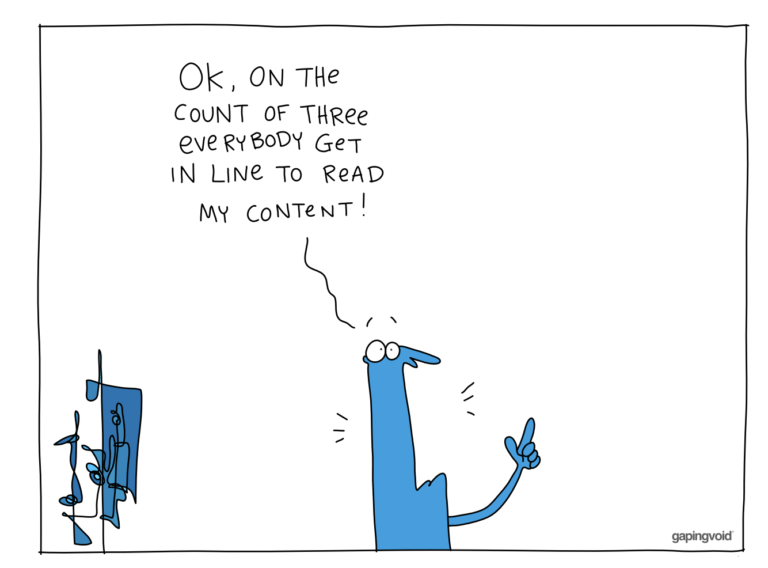Humans are wired to respond to stories on an emotional level. When we hear a good story, it activates the same regions in our brain that would be activated if we were actually experiencing the events being described. This makes storytelling a powerful tool for building connections with customers and creating a memorable brand.
Once upon a time, in 1997, Apple ran it’s "Think Different" Campaign.
The campaign was designed to reposition Apple as a brand that celebrated creativity, innovation, and individuality, and it featured a series of ads that showcased famous people who embodied these values.
The "Think Different" campaign was a worldwide success for Apple, and it helped to reinvigorate the brand and boost sales.
Still wondering why it matters in business?
Social media changed things.
Brands are trying to be people and people are trying to be brands"
Nowadays, storytelling is essential to stand out, but storytelling isn’t simply a nice way of conveying information. It’s about engaging the senses, about creating connection and about conveying depth beyond words.
It’s about;
Emotion:
When people hear a good story, it elicits an emotional response. Emotions are powerful motivators, and they can help to create a stronger connection between a business and its customers. By using storytelling to tap into emotions like empathy, inspiration, or humor, businesses can create a more memorable and engaging brand experience.
2. Memorability:
Stories are easier to remember than facts or statistics. When businesses use storytelling to communicate their message, it is more likely to stick with their audience. This is particularly important in a world where people are bombarded with information and have short attention spans. A good story can cut through the noise and make a lasting impression.
3. Authenticity:
People respond to authenticity. When a business shares a story that is true to its values and mission, it creates a sense of trust and credibility with its audience. This can be particularly important for startups or businesses that are trying to establish themselves in a crowded market.
4. Connection:
Storytelling can help businesses create a connection with their audience. When people hear a story that resonates with them, it can create a sense of shared experience or values. This can help to build brand loyalty and advocacy.
5. Differentiation:
Storytelling can help a business stand out from its competitors. When a business tells a unique and compelling story, it can differentiate itself from others in the market. This can be particularly important in industries where products or services are similar, and businesses need to find a way to stand out.
5 Techniques to crafting the perfect story
So, do you struggle to connect with your customers?
Do you want to stand out in a very competitive market?
Do you want to accelerate your career or even just promote your ideas internally?
You’ve got to craft the perfect story!
We spoke to Philipp Humm on the latest edition of The Unlocking Growth Show.
Philipp is the Founder of Power of Storytelling, is the author of "The Story Selling Method" and TEDx Speaker.
It doesn’t matter whether you’re in HR, marketing, sales or the CEO, you’re going to need to master the fundamentals if you’re going to be able to engage, influence and reach your goals.
Phillipp’s top 5 techniques to crafting the perfect story include;
- Focusing on pivotal moments
- Bringing in elements of surprise
- Making it emotional
- Bringing in relatable challenge
- Keep it concise
Of course we don’t want to give too much away so feel free to listen to the blog.
The storytelling process
Like all espacts of business, the better you define and develop your process around storytelling, the better your stories will be and the more impact they’ll have on others and the business.
1. Audience
You always want focus on something relatable says Phillip.
Climbing Mount Everest is probably not a challenge everyone can relate to. In order to find a relatable challenge, you’re going to have to know who you’re talking to.
Define your audience persona not just by who they are (E.g. entrepreneurs based in the US) but understand them. What keeps them up at night? What are their dreams? How do they spend their time outside of work?
A deep understanding of your audience will help you connect more relevantly. Make sure to really connect through interviews. Tech tip – make sure to utilize zero and first-party data.
2. Define your message BUT also the feeling
It’s easy to define a message if you think about it. The more important part of storytelling is to think about how you want your audience to feel. This will have a big impact on how you structure the message.
3. Don't just measure CTA's but measure connection
There’s a reason that everyone loves The Real Housewives! (We all do at Whale, thanks to our beloved Stino who tells us all about the latest episodes at the office!)
90% of marketers say that building an active online community is crucial to success in 2023.
Stories are a shared experience. The more you create a shared experience, the more likely your stories are to be successful.
So make sure you measure engagement and not just ‘clicks’.
Bottom line?
Storytelling helps us connect with people, and it can be a powerful tool for marketing and selling. The most successful companies are those that have mastered storytelling, using it to speak to customers’ needs and emotions in a way that no other form of marketing can.
According to a study by Edelman, 63% of the surveyed consumers said they would remember a brand that tells a memorable story more than they would remember a brand that only presents facts and figures. This highlights the importance of storytelling as a powerful tool for businesses to engage and connect with their audience on an emotional level.

Readiness to Scale Assessment
Almost everyone wants to scale their business but where to start? Take our Readiness to Scale Assessment to find out! You’ll be presented with 10 statements that correlate to one of three specific scaling stages in business.








